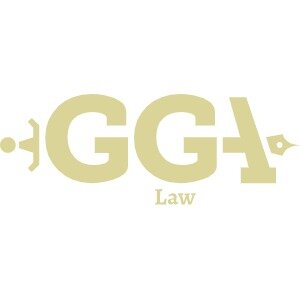Best Hiring & Firing Lawyers in Nairobi
Share your needs with us, get contacted by law firms.
Free. Takes 2 min.
List of the best lawyers in Nairobi, Kenya
About Hiring & Firing Law in Nairobi, Kenya
Hiring & Firing law in Nairobi, Kenya encompasses the legal regulations and processes involved in employing and terminating employees. It is important for both employers and employees to understand their rights and responsibilities to maintain a fair and lawful working environment.
Why You May Need a Lawyer
Hiring & Firing situations can be complex and navigating the legal aspects alone can be challenging. Hiring a lawyer who specializes in employment law can provide valuable assistance in various scenarios, including:
- Disputes or disagreements between employers and employees
- Wrongful termination claims
- Unfair compensation or benefits issues
- Discrimination or harassment concerns
- Negotiating employment contracts
Local Laws Overview
In Nairobi, Kenya, several key aspects of local laws relate to Hiring & Firing. Some important considerations include:
- The Employment Act: Governs employment relationships, terms of employment, and termination procedures.
- Non-Discrimination: Employers must ensure fair treatment and equal opportunities for all employees, regardless of their gender, religion, race, or disability.
- Notice Periods: Specific notice periods may be required when terminating an employee's contract, depending on their length of service.
- Payment of Terminal Dues: Employers must settle any outstanding payments owed to employees upon termination, including accrued leave days and gratuity.
- Prohibited Grounds for Termination: Termination based on an employee's pregnancy, trade union membership, or involvement in lawful activities outside of work is illegal.
Frequently Asked Questions
1. Can an employer terminate an employee without notice?
No, unless there is just cause for termination based on serious misconduct or breach of employment terms, employers generally need to provide notice or payment in lieu of notice.
2. Can an employee resign without notice?
According to the Employment Act, employees are required to provide at least one month's notice before resigning, unless a shorter notice period is agreed upon in the employment contract.
3. What is the maximum probation period allowed for new hires?
The Employment Act specifies a maximum probation period of six months. During this period, employers can assess an employee's suitability for the role and terminate their employment with shorter notice if necessary.
4. How can an employer resolve a dispute with an employee?
It is recommended to engage in internal dispute resolution mechanisms first, such as mediation or arbitration. If the dispute remains unresolved, parties can seek legal assistance or escalate the matter to the relevant labor department or employment tribunal.
5. Are there any specific requirements for terminating an employee's contract due to redundancy?
Yes, employers must follow a fair and transparent redundancy process, which may involve consulting with employees, selecting employees for redundancy fairly, and providing reasonable notice or compensation.
Additional Resources
For further information and assistance regarding Hiring & Firing law in Nairobi, Kenya, you may consider contacting:
- Nairobi Law Society
- Kenya Federation of Employers
- National Industrial Training Authority
- Ministry of Labor and Social Protection
Next Steps
If you require legal assistance in Hiring & Firing matters in Nairobi, Kenya, the recommended steps are:
- Identify your specific legal concern or situation.
- Research and identify specialized employment lawyers or law firms in Nairobi.
- Arrange a consultation with a lawyer to discuss your case and seek guidance.
- Provide all relevant documents and details to your chosen lawyer.
- Engage in open communication with your lawyer to understand the legal process involved.
- Follow your lawyer's advice and guidance throughout the legal proceedings.
- Maintain regular contact with your lawyer to stay informed about the progress of your case.
- Adhere to the legal procedures and decisions made by the relevant authorities.
- Keep copies of all documents and communication related to your case for future reference.
Lawzana helps you find the best lawyers and law firms in Nairobi through a curated and pre-screened list of qualified legal professionals. Our platform offers rankings and detailed profiles of attorneys and law firms, allowing you to compare based on practice areas, including Hiring & Firing, experience, and client feedback.
Each profile includes a description of the firm's areas of practice, client reviews, team members and partners, year of establishment, spoken languages, office locations, contact information, social media presence, and any published articles or resources. Most firms on our platform speak English and are experienced in both local and international legal matters.
Get a quote from top-rated law firms in Nairobi, Kenya — quickly, securely, and without unnecessary hassle.
Disclaimer:
The information provided on this page is for general informational purposes only and does not constitute legal advice. While we strive to ensure the accuracy and relevance of the content, legal information may change over time, and interpretations of the law can vary. You should always consult with a qualified legal professional for advice specific to your situation.
We disclaim all liability for actions taken or not taken based on the content of this page. If you believe any information is incorrect or outdated, please contact us, and we will review and update it where appropriate.

















